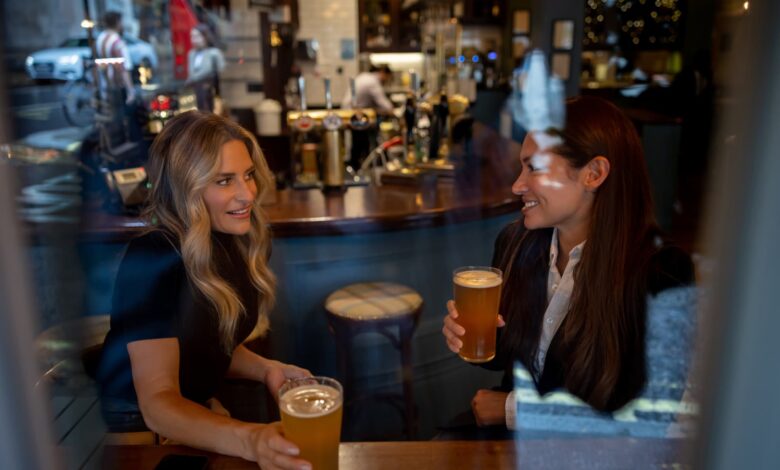Why Brits don’t tip

Andresr | E+ | Getty Images
U.S. tipping culture is a hot and divisive topic for many right now. While Americans are questioning if there are any places left they aren’t expected to tip at, those in other countries are watching with confusion.
The U.K. is among them — tipping is much less common there, and often not even up to the customers.
“Most establishments will add a discretionary charge automatically,” Laura Windsor, founder of an etiquette academy in the U.K., told CNBC Make It.
“You are not obliged to pay the surcharge if the service has been less than satisfactory and you can ask for the charge to be taken off the bill if you were truly unhappy about the service,” she added.
If such a charge appears on your bill, there’s no need to tip, although it’s always an option. If a tip isn’t automatically added, customers usually leave an extra 10-20% of the total bill for workers, Windsor said.
“When it comes to porters in hotels, cloakroom attendants, cab drivers and hairdressers, if you are happy with their service, you can give a couple of pounds although it is not mandatory,” she added.
Cab drivers are also often tipped, usually by rounding up the amount by a few pounds or dollars, according to both Windsor and etiquette expert Jo Bryant.
Exceptions are also made for special occasions, Bryant told CNBC Make It.
“We also tend give a one-off tip to those who supply a regular service to us – for example domestic cleaners – at Christmas,” she said.
But there are some circumstances in which Brits would never tip but Americans always would, Bryant pointed out. “We would never tip in a coffee shop, pub or bar,” she said.
Rising pressure to tip in the U.S.
But tipping is booming in the United States. Tips have gotten higher in the last few decades — and far more common. According to a report published by Bankrate earlier this year, close to a third of Americans now say tipping culture is “out of control.”
That’s a major reversal from the past, Marc Mentzer, a professor of human resources and organizational behavior at the University of Saskatchewan who has studied tipping culture extensively, told CNBC Make It.
“In the early decades of the US, tipping was seen as anti-democratic and anti-equalitarian,” he said. And employers were suspicious of it, wondering if tipping was a way to bribe their workers.
That changed during the 1920s, when an alcohol ban shattered profit margins that used to be immense, Mentzer added.
“Restaurant owners started to welcome the custom of tipping because it took some of the financial pressure off of owners,” he said.
Today, being asked how much you’d like to tip — whether directly or on screen when making payments through tablets and card machines — is commonplace everywhere from coffee shops to bars, and for food deliveries and trips in ride-shares.
The pressure to tip has risen, thanks to automatic tipping prompts on apps, for example, a report on consumer budgeting by NerdWallet said in May.
‘A bonus, not a right’ in the UK
But in the U.K., the picture is still quite different.
“Tipping is not expected in Britain the way it is in the U.S.,” Windsor said. “A tip is considered a bonus, not a right,” she added.
One of the main reasons for the difference is that service industry workers are paid differently in the U.K. and the U.S., Windsor and Bryant said.
“Those who may receive more tips in the same profession overseas, for example waiting staff, tend to have a higher wage in the UK. Their income is set higher due to our levels of minimum wage, so they are less dependent on tips to supplement their income,” Bryant said.
But cultural differences also play a role, she added.
“As a general rule, the British hate discussing or being showy with money,” Bryant said. Talking about money is considered bad manners, and directly giving cash to people makes many Brits uncomfortable, she said.
Current attitudes to tipping are in some ways a reversal of historical sentiment toward gratuity, Mentzer said.
“In England, there was a long tradition of houseguests leaving some money for the host’s servants, and this custom spread to other transactions in the hospitality industry,” he said.
“American visitors to Britain in the late 1880s and very early 1900s complained that every British service worker expected a tip.”
But the differences in both countries’ tipping cultures may be narrowing.
In London, more and more places in which tipping is historically unusual now show automatic tipping prompts to customers.
Whether the British will accept that or stay true to their reputation for being stingy is another question.




